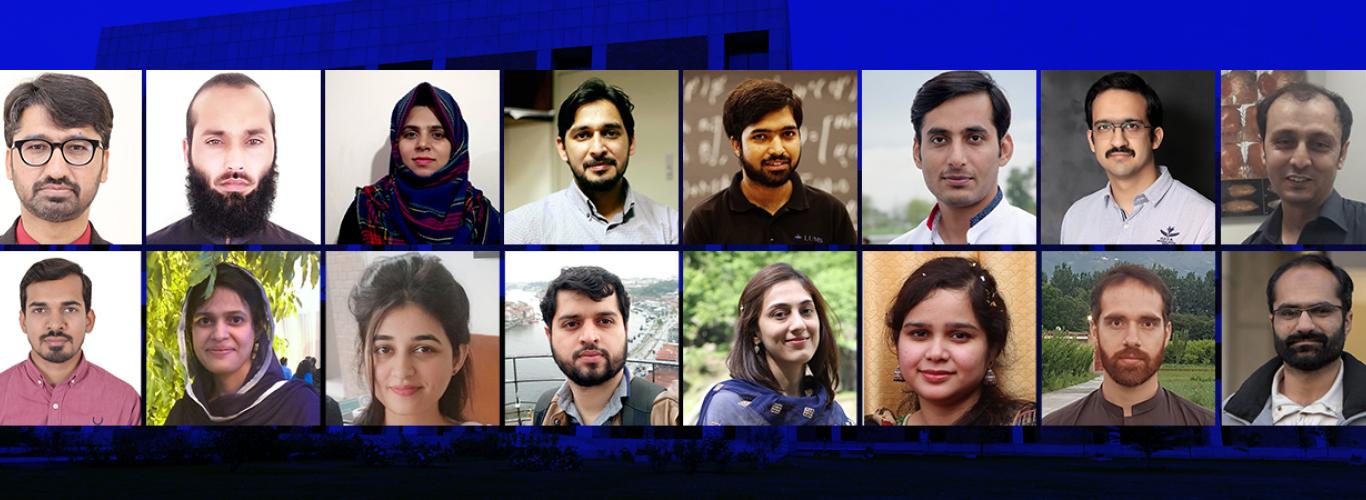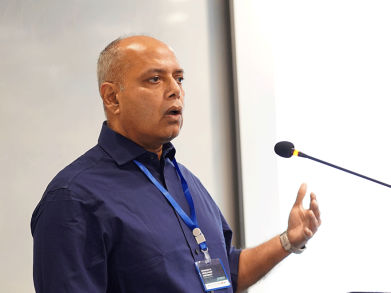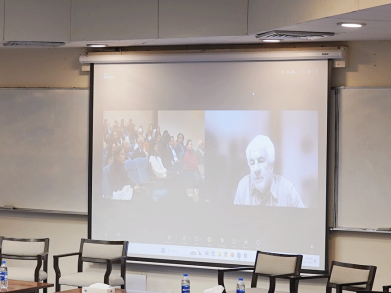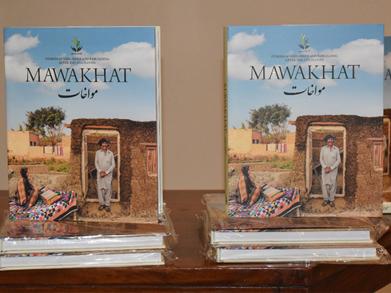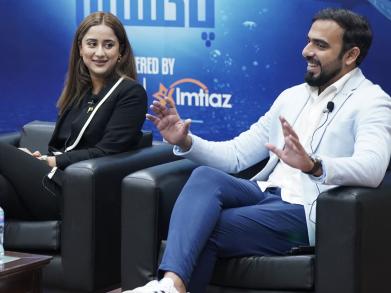A Milestone Achievement: LUMS School of Science and Engineering Graduates 18 PhD Students
The LUMS faculty has a firm belief that great ideas and groundbreaking research can transform society and help enhance economic, social and cultural connections across the region and the entire world. Research is a critical aspect of at learning and teaching at LUMS and the University provides its PhD students insight into that research – and also provides them the opportunity to make key research contributions of their own. This year, owing to the research intensive climate of the School of Science and Engineering, 18 PhD students have been successful in obtaining their degrees.
“I am thankful to LUMS for providing our School with the opportunity to realise its dream of research, discovery and invention and what better way could there be than producing PhD graduates who are far better than us! In the past six months, the Syed Babar Ali School of Science and Engineering (SBASSE) has graduated 18 PhD students, with an average graduation time of less than 5 years. This is important to mention because scientific investigations, especially in Pakistan, are protracted, riddled by the lack of resources, sub-optimal infrastructure, absence of post-docs, and bureaucratic delays coming down with public funds, ” announced the proud, enthusiastic Dean of SBASSE, Muhammad Sabieh Anwar.
LUMS PhD degrees are designed to develop forward-thinking graduates, and help them redefine their potential in an inspiring, no-borders academic setting. Our faculty are experts in their fields, whose work is centred on making an impact on society. The University’s focus on interdisciplinary research sees our experts collaborate across faculties, institutions, countries and continents to find solutions to some of the world’s most pressing challenges.
“These PhD students have produced more than 50 journal articles with a cumulative impact factor of more than 100, 25 conference articles, and numerous new tools, technologies and software. This body of knowledge has also helped the faculty apply for external grants amounting to PKR 2.5 billion in the past one year alone. Most of these grant applications are transdisciplinary and under review."
“The PhD cohort has worked on a myriad of problems ranging from modelling disease to inching closer to cancer therapies, from measuring quantum processes to synthesising new drug molecules, and from harnessing sun's energy for chemical reactions to advancing novel paradigms of computing,” shared Dr. Anwar.
He is confident that this trend will continue as the LUMS environment is extremely conducive to conducting research activities and encourages innovation. “This is a mini revolution brewing in Pakistan's scientific landscape. This news is the culmination of visionary steps taken by the LUMS leadership, the advisory board and the SBASSE faculty only ten years ago. The journey continues.”
Higher education and research have come to the forefront of international debates about scientific advancement and economic growth. Postgraduate education has paramount significance in a world where knowledge is the new 'fuel', the ultimate means to solving issues and problems facing our communities. The following PhD researchers are all set to be at the frontline, providing valuable solutions to critical issues facing mankind.
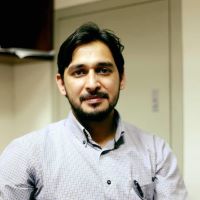
Ali Akbar - PhD in Physics
After obtaining his Master’s degree in Physics from Quaid-e-Azam University, Ali Akbar joined the PhD programme at LUMS and conducted research that proved to be valuable in the development of magneto-optic effects, manifestations of light-matter interaction and their role in development of modern technology. Primarily, his work focuses on the Explorations in Magneto-Optics and Opto-Magnetics; the overarching role of which can be realised in the manufacturing of devices such as optical isolators, optical modulators, polarisation control and nonreciprocal phase-shifters. His pioneering work for explorations of magneto-optics in the quantum realm paves the path for potential applicability of magneto-optics in the field of Quantum Information.
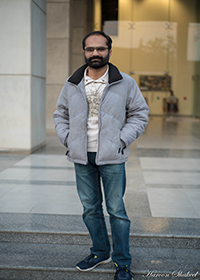
Numan Khurshid – PhD in Electrical Engineering
Equipped with a strong educational background in Electrical Engineering, Numan Khurshid joined the PhD programme at LUMS and began his work on Cross-View Image Retrieval Using Image Matching for Remote Sensing Imagery. He considered LUMS to be the ideal fit for his research due to its encouragement of cross-domain research through state-of-the-art research labs, which enabled him to link the two disparate fields of machine learning and the remote sensing of earthly objects. Khurshid’s research allows for numerous applications in space sciences, natural resource management, and monitoring of infrastructures and has already proven valuable in detecting brick kilns from volumes of satellite imagery.“I am thankful to LUMS for the technical domain knowledge and computational resources required to carry out such an advanced research in the field of computer vision,” shared Khurshid.
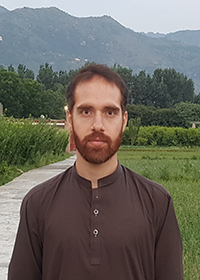
Rahim Ullah – PhD in Biology
Prior to his admission to the LUMS PhD programme, Rahim Uallah graduated from Quaid-i-Azam University with an MPhil degree in biotechnology and also gained practical experience working in the field of human genetics. During the course of his research at LUMS, he focused on Deciphering the Molecular Basis of Trophoblast Stem Cell Differentiation and Function. His work lead to the identification of differential transcriptome in mouse TSCs and TGCs, which was previously not known. Functional validation of these genes will not only enhance the general understanding of mammalian development but could also lead to finding ways to treat placental abnormalities and diseases.
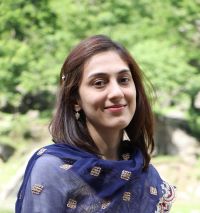
Aqsa Naeem - PhD in Electrical Engineering
Aqsa Naeem’s work on Mitigation of Renewable Energy Source Intermittency in Microgrids Using Complementary Renewable Energy Sources has proven to be of great value. She proposes an alternate way to mitigate the intermittency of Renewable Energy Sources (RESs) by combining two or more complementary, local energy sources—a solution that is not only sustainable but economically feasible as well. Through rigorous research, she deduces that Pakistan could easily exploit the complementary nature of solar and wind energies in the interior and coastal regions of Sindh for electricity generation. Her extraordinary work has led Naeem to be offered a postdoctoral opportunity at Stanford University, which she is looking forward to starting in fall 2020.
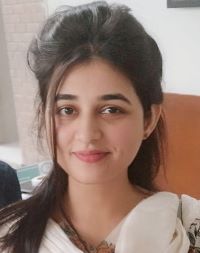
Munazza Shahid – PhD in Chemistry
Munazza Shahid has made great contributions in the field of Chemical Engineering through her research, Engineering of HIV-1 and HCV Entry Inhibitor Lectins and Understanding the Atomic Level Details of HIV Cellular Entry Process. The engineered lectin, named LUMS1, has proven to inhibit HIV-1 and HCV infections and also has much better safety profile as compared to its analogue Microvirin (MVN) and another well-known potent antiviral lectin Cyanovirin (CVN). Moreover, this protein could also inhibit other glycosylated viruses such as coronavirus and dengue virus. LUMS provided her with the opportunity to expand her skillset and knowledge by visiting and working in Germany as well as in Liverpool, United Kingdom at one of the world’s most eminent X-ray crystallography laboratories.“Overall, LUMS contributed in every aspect to my learning, training and achieving my research goals and enabled me to move forward towards being an independent investigator,” said Shahid.

Akhtar Munir – PhD in Chemistry
Through his dissertation, Development of Nanocatalysts for Water Splitting - A Sustainable Source of Energy, Akhtar Munir has made remarkable progress in the development of highly effective catalysts that aid the production of hydrogen from water. He developed nanoscale materials by dispersing earth-abundant metals (Copper, Nickel, and Iron) on various porous carbon supports. Promisingly, co nanoclusters revealed their potential for sustainable and cost-effective production of green hydrogen. Due to the depletion of traditional energy sources, scientists across the globe have been striving to uncover alternate and renewable energy resources—which is why Munir’s findings hold immense significance. His research has already been published in various highly prestigious international journals such as ChemSusChem, ACS Applied Energy Materials, Electrochimica Acta and Chemistry – A European Journal.
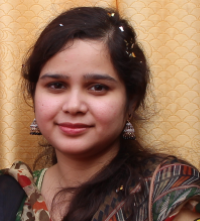
Sharon Riaz – PhD in Chemistry
After obtaining her MSc and MPhil degrees from Quaid-e-Azam University, Sharon Riaz joined the LUMS PhD programme, where she directed her research to assuage one of the major beasts threatening mankind: cancer. Her work, Synthesis and Biological Evaluation of Novel Chalcone Derivatives, focuses on the discovery of next generation cancer therapeutics. She has prepared a library of chalcones, the biological evolution of which engendered a lead compound with the ability to kill not only normal cancer cells but also the ones that are resistant to current therapeutics.
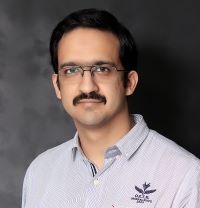
Faran Butt - PhD in Electrical Engineering
After completing his Master’s degree in Computer Engineering from LUMS, Faran Butt joined the PhD programme and began working on developments in radar technology, which is pivotal for a country’s defense, civilian aviation and security surveillance. His research, Next Generation Phased-MIMO Radar Systems: From Theory to Practice is primarily focused on the methods, techniques and implementation of multi-antenna radar systems for improved target information. Owed to his valuable research, he published three international conference papers and one international journal article. He has also received a priority date for the work he submitted for patenting in the Intellectual Property Organization of Pakistan.
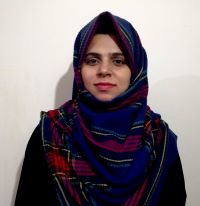
Asma Ahsan – PhD in Biology
Asma Ahsan’s research focuses on the Characterisation of Epitope Specific Antibodies from Chronically Infected and Spontaneously Resolved HCV Infected Patients. Her work paves the path for the creation of a competitive vaccine candidate against the hepatitis C virus by mimicking the immunological strategies adopted by the individuals with successful viral eradiation history. In the future, Ahsan plans to pursue a post doctorate position in virology with a focus on hepatitis B and C.

Muhammad Kamran – PhD in Electrical Engineering
After completing his MSc and MPhil in Electronics from Quaid-i-Azam University, Muhammad Kamran began joined the PhD programme at LUMS with a focus on Computational Electromagnetics and Optical Modeling of Photovoltaics Solar Cells. His research is applicable and valuable in the fields of optical sensing and photovoltaics solar cells. LUMS was Kamran’s top choice primarily because of its generous funding and the top-notch lab facilities.“Most of my work is computational, and LUMS provided me with the best computational facilities and commercially available software,” shared Kamran.
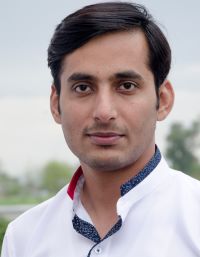
M. Haroon Shakeel – PhD in Computer Science
Inherently fascinated by Artificial Intelligence, Haroon Shakeel obtained his Master’s degree in machine learning and language processing from COMSATS; after which he joined the PhD programme at LUMS. “I chose LUMS as it was a pioneer research institute of Pakistan in the field of NLP with established research published in reputable conferences and journals. KADE Lab at LUMS offered some excellent research opportunities for novel research in the field of NLP in an established infrastructure,” said Shakeel.Shakeel worked on the analytics for short and informal textual content, and created a robust text analytics model that performs well across formal, informal, and multilingual text. His research, Deep Learning Methods for Short, Informal, and Multilingual Text Analytics, demonstrates the efficacy of the proposed approaches for duplicate questions detection on question-answer forums, automatic complaints detection from citizen's feedback on availing different public services, and detection of negative/positive sentiment of Tweets concerning a particular event or personality.
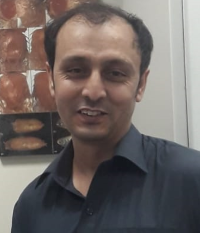
Jawad Akhtar – PhD in Biology
Jawad Akhtar’s PhD dissertation, Genetic and Molecular Analysis Uncovers a Novel Role for Drosophila Enok in Maintenance of Epigenetic Cell Memory, focuses on the genetic and molecular analysis of Enok, a histone acetyltransferase, as a trxG factor. He analyses its contribution to epigenetic cell memory governed by the PcG/trxG paradigm. Akhtar’s research reveals that histone H3K23ac deposited by Enok is important for epigenetic gene regulation by trxG and this mark inhibits silencing by PcG factors. This process is critical as abnormalities in this regulation are linked to abnormalities as well as several diseases, such as cancer.Akhtar’s valuable research is widely recognised and has been published in Epigenetics and Chromatin (Umer, Z., Akhtar, J., Khan, M.H.F. et al., 2019).
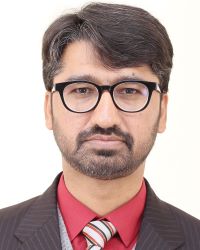
Affan Rauf – PhD in Computer Science
Affan Rauf’s research focuses on the Incremental Techniques in Automated Test Case Generation, for which he improved two state-of-the-art tools for test case generation to work incrementally. His research is greatly beneficial to software companies as it drastically reduces the time required to generate test cases by not only enabling the parallel generation of test cases but also by eliminating redundant processing.
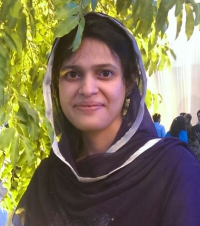
Maryam Abdul Ghafoor – PhD in Computer Science
After completing her Master’s in Computer Science from LUMS, Maryam Ghafoor joined the PhD programme where she focused on Automated Testing of Database Driven Applications. Database driven applications are the core of most modern software applications, which is why the thorough testing of these applications is essential. However, testing them manually is an exhaustive and time-consuming process. Ghafoor’s work on automated testing not only ensures robust software quality but guarantees greater efficiency at a lesser cost. Sharing her future plans, Ghafoor said that she wants to advance her knowledge, apply it to different problems via research, and spread her knowledge to those who need it.
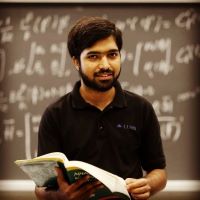
Burhan Haq – PhD in Mathematics
Burhan Haq’s research primarily focuses on the Exact Solutions of Nonlinear Differential Equations and plays a critical role in unveiling the physical properties of dynamical systems. His work provides a novel way to compute the closed-form solutions of first order nonlinear coupled systems of differential equations. Haq found LUMS to be the ideal institute for his research, owed to the academic freedom and superb facilities and funds offered. “LUMS provided me with an environment to shape my direction of research freely. I must mention that I enjoyed the best of my mental health during my PhD without any significant stress. Moreover, financial support provided by LUMS allowed me to fully concentrate on my research,” he shared.
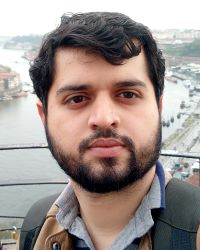
Saad Ahmed – PhD in Computer Science
After working as a software engineer for over a year, Saad Ahmed joined the PhD programme at LUMS, where he began his work on batteryless IoT devices. His research, Fast and Energy-efficient Intermittent Computing, focuses on the intelligent utilisation of the energy available to a batteryless IoT device in order to ensure energy-efficiency and faster execution of IoT application. Ahmed acknowledges the support he received from LUMS during the course of his research. “From lab equipment to travel grants for attending conferences, I always got the help that I need to achieve my research milestones which is unprecedented in Pakistan,” he shared.
M. Haider Farooq Khan - PhD in Biology
Research: Kinome-wide RNAi screen uncovers the role of Drosophila Ballchen in maintenance of epigenetic cell memory
Wajeeha Nafees - PhD in Electrical Engineering
Research: Development of Novel Techniques for Signal Acquisition and Representation on Spherical Manifolds
LUMS congratulates these PhD graduates and wishes them the best of luck in their future endeavours.

